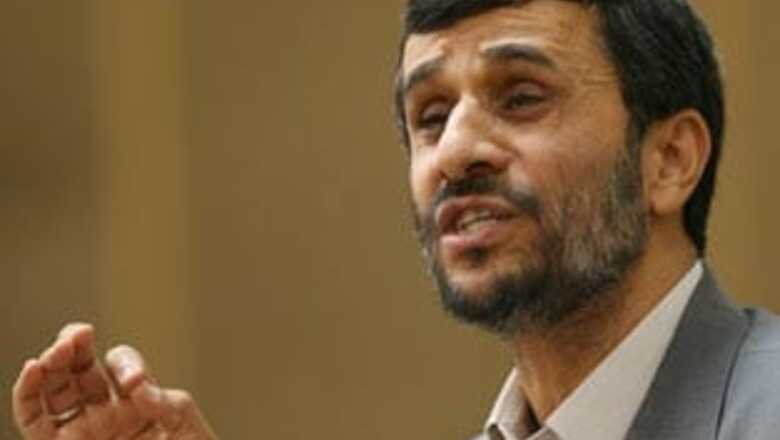
views
Tehran: Iran plans to send a bigger satellite into space on a rocket with a range of up to 1,500 km (930 miles), President Mahmoud Ahmadinejad said on Tuesday, in comments that may spark further Western concern.
Iran launched a domestically made satellite into orbit for the first time in February, a step that worried Western powers which fear the Islamic Republic is seeking to build a nuclear bomb and missile delivery systems.
Iran, the world's fourth-largest oil producer, says its nuclear programme is to generate electricity, and that the February 3 launch of the Omid satellite was for peaceful telecommunications and research purposes.
The long-range ballistic technology used to put satellites into orbit could also be used to launch warheads, although Iran says it has no plans to do so.
"A rocket with a range of 700-1,500 km is scheduled to take a bigger satellite (than Omid) into space," Ahmadinejad was quoted by the official IRNA news agency as saying in a speech to students.
Ahmadinejad gave no more details but IRNA said he referred to the design and production of long-range missiles intended to carry satellites into space.
State media said last month Omid had successfully completed its tasks in space, seven weeks after it was sent it into orbit.
Telecommunications Minister Mohammad Soleimani has said Iranian scientists were manufacturing seven more satellites.
NO HALT
Ahmadinejad again ruled out any halt to Iran's nuclear work, a day after a senior Iranian official expressed readiness to enter talks with world powers on the dispute in a telephone conversation with EU foreign policy chief Javier Solana.
Saying Iran is now running 7,000 centrifuges to enrich uranium, which can have both civilian and military uses, Ahmadinejad said: ''Iran's peaceful nuclear programme ... is advancing and no one can stop the Iranian nation.''
The United States, Russia, China, France, Germany and Britain said last week they would ask Solana to invite Iran to a meeting to find "a diplomatic solution to this critical issue", referring to the long-running nuclear row.
That marked a major shift in US policy under new President Barack Obama, whose predecessor George W Bush's administration shunned direct talks with Tehran as long as it pressed ahead with sensitive nuclear activity.
Iran's chief nuclear negotiator Saeed Jalili told Solana Tehran would welcome constructive dialogue with the six powers, media said on Monday, in the country's clearest signal yet it would accept the invitation for talks on the nuclear issue.
The New York Times reported on Monday that the Obama administration and its European allies were considering dropping a long-standing US demand that Iran immediately shut down its nuclear facilities if it entered such talks.




















Comments
0 comment